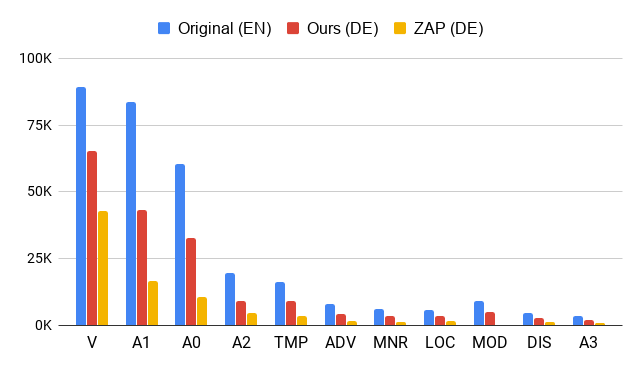Detecting Fine-Grained Cross-Lingual Semantic Divergences without Supervision by Learning to Rank
Eleftheria Briakou, Marine Carpuat
Semantics: Sentence-level Semantics, Textual Inference and Other areas Long Paper

You can open the pre-recorded video in a separate window.
Abstract:
Detecting fine-grained differences in content conveyed in different languages matters for cross-lingual NLP and multilingual corpora analysis, but it is a challenging machine learning problem since annotation is expensive and hard to scale. This work improves the prediction and annotation of fine-grained semantic divergences. We introduce a training strategy for multilingual BERT models by learning to rank synthetic divergent examples of varying granularity. We evaluate our models on the Rationalized English-French Semantic Divergences, a new dataset released with this work, consisting of English-French sentence-pairs annotated with semantic divergence classes and token-level rationales. Learning to rank helps detect fine-grained sentence-level divergences more accurately than a strong sentence-level similarity model, while token-level predictions have the potential of further distinguishing between coarse and fine-grained divergences.
NOTE: Video may display a random order of authors.
Correct author list is at the top of this page.
Connected Papers in EMNLP2020
Similar Papers
Compositional and Lexical Semantics in RoBERTa, BERT and DistilBERT: A Case Study on CoQA
Ieva Staliūnaitė, Ignacio Iacobacci,

XL-WiC: A Multilingual Benchmark for Evaluating Semantic Contextualization
Alessandro Raganato, Tommaso Pasini, Jose Camacho-Collados, Mohammad Taher Pilehvar,

Multitask Learning for Cross-Lingual Transfer of Broad-coverage Semantic Dependencies
Maryam Aminian, Mohammad Sadegh Rasooli, Mona Diab,

